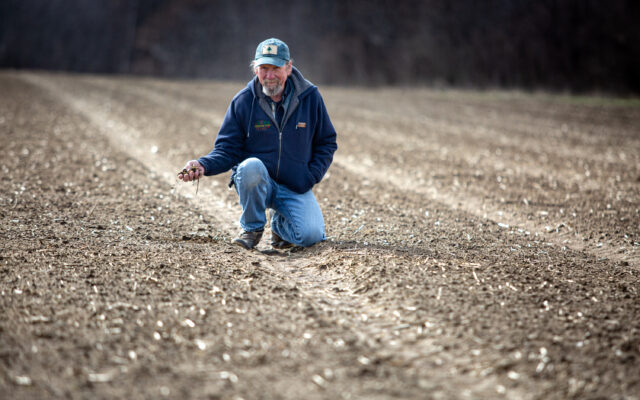
Agriculture, soils play large role in state’s response to climate change
By Laurie Osher
As we see images of the extent of Hurricane Ian’s destruction in Florida, we know that we are observing the kind of climate change impact that scientists have long predicted. Here in Maine we have experienced unprecedented climate impacts this year, too: the severe drought we faced this summer devastated crops and livelihoods and elevated the potential of wildfires across at least half of the state.
The changing climate threatens our state’s $3.6 billion agricultural industry. With 7,600 farms and more than 1.3 million acres in farmland, Maine’s agriculture industry is at increasing risk. Fortunately, with effort, we can modify our agricultural practices to lessen the effects of climate change and be more resilient.
Over the last several years, Maine has gained significant momentum in our fight against climate change. We must sustain our efforts going forward. As a PhD soil scientist, business owner and state legislator, I see a number of promising projects around the state. As citizens we all can play a role in lessening climate change.
I originally moved to Maine in 1999 for a research and teaching position at the University of Maine focused on land management to address climate change — specifically using the power of plants to store carbon in soils. My students and I studied soil carbon sequestration in estuarine ecosystems, now called blue carbon.
The agricultural sector nationally is responsible for 11 percent of U.S. greenhouse gas emissions. A growing body of research shows that regenerative farming can mitigate climate change and help soil regain its fertility and resiliency. A recent study by the University of Washington showed that soil on farms that had practiced regenerative methods for at least five years contained twice as much carbon as soil on neighboring conventional farms, and the food grown on them was richer in vitamins and minerals. Policies that incentivize carbon sequestration in agriculture (and forestry) are an example of what Maine can do to address the climate crisis.
Since 2020, I’ve been a state legislator, representing Orono in the Maine House. I am proud to have co-sponsored two soils-related bills. One created Maine’s Healthy Soils Program and the other, a study to investigate how Maine can incentivize managing land for soil carbon sequestration; both passed and became a law in 2021. The report on soil carbon storage was finalized this summer. It contains suggestions for policies to incentivize soil carbon storage that will be introduced as bills in the next legislative session.
I now work for Eastern Maine Development Corp as their community resilience specialist. We help communities in Penobscot, Piscataquis and Aroostook counties access state funds so that they can be more resilient to the impacts of the changing climate. This work and the entire Climate Resilience Partnership program is funded by $4.75 million allocated by the state budget. EMDC is also partnering with the Mills’ administration to develop a workforce trained to staff the growing clean energy businesses in our state.
There is huge value in investing in soils carbon sequestration and a clean energy-based economy more broadly. We have made good progress in the past several years. Maine, its next governor and Legislature must continue to address the impacts of climate change, work toward decreasing our greenhouse gas emissions, and move into the next decade with resilience to extreme weather events.
Osher of Orono represents District 123 in the Maine House of Representatives and is a former University of Maine faculty member. She is the community resilience specialist at Eastern Maine Development Corporation and the owner of Osher Environment Systems.